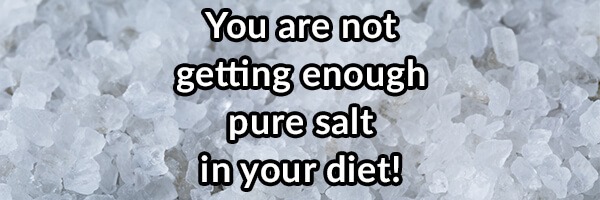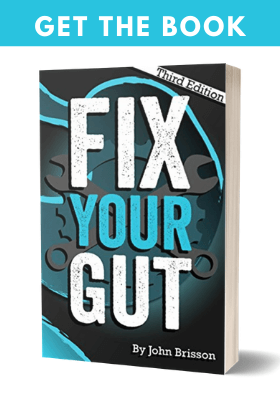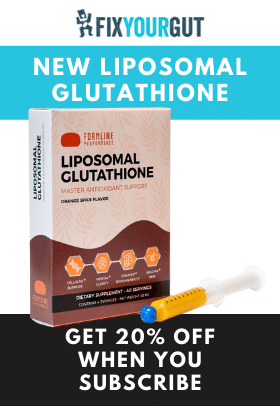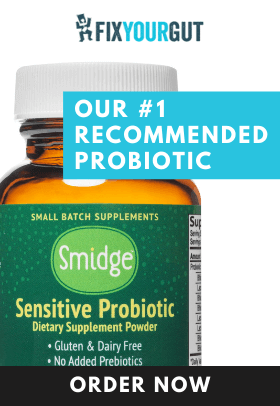Salt: Why Everyone Says You Are Getting Too Much, Why They Are Wrong, and How a Lack of It Can Greatly Impact Your Health
You are not getting enough pure salt in your diet.
Yeah, you read that right.
How can that be? The medical establishment, the government, and the media tell me that a diet high in sodium is the blame for a lot of heart health issues: high blood pressure, heart disease, and worsening heart failure.1 2
When you have high blood pressure, what does your doctor tell you? “Cut out the salt.” Instead, they should have told you to cut out the trans fat,3 PUFA,4 or excessive sugar5 that comprises a lot of the standard American diet. No, instead they tell you to reduce your salt intake.
Reduce your salt intake if you want to die from heart disease quicker.6 7 8
Does Elevated Salt Intake Cause Heart Disease?
Many doctors believe that “excessive” (less than ten grams daily) sodium intake causes high blood pressure, but most studies have shown it does not unless someone is suffering from chronic kidney disease. Being overweight,9 diabetic,10 ill-functioning mitochondria,11 limited omega 3/magnesium ingestion,12smoking,13 systemic inflammation,14 and leaky gut15 are the many causes of high blood pressure, however, not sodium intake.
A Cochrane review of 6,257 individuals from a large meta-study in 2011 concluded that:16
“We found no strong evidence that salt reduction reduced all-cause mortality or CVD morbidity in normotensives or hypertensives.”17
The same study mentioned of the heart failure paradox when it relates to low sodium diets. Studies done on low sodium diets and heart failure patients have had issues. One study had to be stopped because more people were dying from heart failure in the low sodium group, than those who consumed normal or elevated amounts of sodium. If you have heart failure, the DASH diet that restricts sodium is probably one of the worst diets to be on.18
The study drives the final nail in the anti-salt coffin. The study claims that the reason we saw a reduction of cardiovascular events in those that reduced sodium in a main pro sodium reduction study (Francesco P Cappuccio’s WAR ON SALT) was not from the reduction of salt at all. The decrease in blood pressure and cardiovascular events came from lifestyle changes that were made, and those were the only reason their health improved:
“People who choose a lower-salt diet are likely to also eat a diet of fresh foods, lower in fats and refined carbohydrate, take more exercise and be less likely to smoke, so their lower levels of deaths and disease may not relate to salt intake at all.”19
The Cochrane Review also determines that salt reduction only reduces blood pressure within the margin of error:
“End of trial systolic and diastolic BPs were reduced by an average of some 1mm Hg in normotensives and by an average of 2–4mm Hg in hypertensives and those with heart failure.”20
There were limitations in this study; they give you most of the truth peppered in with some conventional rhetoric. Common with most academia, cannot deviate from the norm.
The study states:
“Sustained long-term reductions in BP of 1 and 4mm Hg would be predicted to reduce CVD mortality by 5% and 20%, respectively.”21
No mention of a reduction in systolic or diastolic for the above claim. The reference the study that was talking about diastolic blood pressure specifically. The results of that 1990 study:
“Prolonged differences in usual DBP of 5,7·5, and 10 mm Hg were respectively associated with at least 34%, 46%, and 56% less stroke and at least 21%. 29%, and 37% less CHD.”22
Well the math does not quite add up.
The meta-study finally sells out:
“Our findings are consistent with the belief that salt reduction is beneficial in normotensive and hypertensive people.”23
Contradictory to everything stated at the top of the discussion and the data, eh?
What is Salt and Why Do We Need It?
Salt is a chemical compound comprised of mostly sodium chloride and trace minerals. Human beings need sodium and chloride in thousands of biochemical reactions. We need sodium to regulate blood volume, blood pressure, osmotic equilibrium, and as an electrolyte for proper heart and nerve conduction. Sodium is one of our primary electrolytes and is essential for proper health.24 25
Everyone knows how vital sodium is for our health, but chloride is an important forgotten essential mineral. Chloride is formed when chlorine gains an electron. Chloride is a crucial negatively charged ion (anion) in the blood and is an electrolyte and essential for neuronal signaling. It is used by our body to produce hydrochloric acid (stomach acid) when it bonds with hydrogen produced by the hydrogen pump within our stomach cells. Stomach acid is used by our stomach to maintain proper pH and help digest our food correctly to prevent upper gut dysbiosis and maldigestion. Finally, chloride helps to regulate extracellular fluid volume and blood volume homeostasis.26 27
Chloride and sodium work in tandem together to accomplish a lot of the same actions within the body. It would appear based on this information that proper pure salt intake would be necessary for our health.28 29
Natural salt contains a lot of primary minerals and trace minerals that are lacking in our modern diets. Primary minerals include calcium, magnesium, and sulfur. Trace minerals include zinc, selenium, iodine, molybdenum, chromium, cobalt, and others.30 31
Who Might Need to Limit Their Salt Intake
People with advanced kidney disease. Then again if you have advanced kidney disease, you should limit some excess electrolytes and minerals. Your sodium intake should be only from what is found naturally in foods and what little you can use of natural salt to meet your sodium restriction recommendations and not from processed foods.32
If you are suffering from Th17 dominance, you might want to avoid heavy salt intake (more than three to four grams daily and spread it out between meals), it may make your symptoms worse. In addition, people with H. pylori dysbiosis might want to avoid a large amount of salt because it may increase virulence.33
The Junk In Stores They Call Salt and Why It Is Bad For You
All salt is not equal in their benefits to your health.
Most of the consumer grade salt preparations include harmful fillers. Standard salt is stripped of its trace minerals, some products are bleached, and a bunch of inferior additives is added to improve the salt’s “flow.”34
The additives can range from harmless to cringe-worthy. They include:
Potassium iodide – gives the body iodine that is needed by the body, safe for most people. You may need to supplement with iodine like Detoxadine if you use natural salt that does not add iodine to the product, and you do not ingest enough iodine from food.35
Magnesium carbonate – magnesium is a beneficial nutrient, but it might reduce stomach acid, though, the only downfall of ingesting it.36
Dextrose (probably GMO) – mostly harmless.37
Calcium silicate – silica ingestion is somewhat harmless and needed by the body as a trace mineral. Inhaling it, on the other hand, can cause a lot of health issues.38
Tricalcium phosphate – “bone ash” form of calcium. It is found in bones and rocks. Low oral toxicity.39
Sodium ferrocyanide (yellow prussiate of soda) – one of lesser toxic cyanide compounds. For the most part, it does not release free cyanide that is poisonous. If combined with acid it may release small amounts of cyanide gas. It is best to err on the side of caution.40
Sodium silicoaluminate – silica and aluminum. Aluminum is mostly inert in the gastrointestinal tract as long as you are not suffering from leaky gut or ulcerations. Nonetheless, it is still aluminum and should be avoided if possible since it does not serve any biological function in the body.41 42
Depending on the additive, the product can even be mostly benign or ingest with caution. Even with the less offensive additives found in most commercial salt products, the salt is still stripped of trace minerals and bleached. Our modern diet lacks most trace minerals and ingestion of them can be important.
I also have some issues with other forms of “natural” salt as well. Himalayan salt might contain too much fluoride (granted natural fluoride is not sodium hexafluorosilicate, the inorganic kind used in water fluoridation), and some of the cheaper Himalayan salt products may be artificially dyed pink.43
How Much Salt Should I Take In Daily?
Your daily salt intake depends on a lot of independent variables. Hydration, activity amount, if you are on any medications, salt intake from diet, aldosterone need (adrenal fatigue), nonnative EMF exposure, and the list goes on.44
All I can recommend is that if you are reasonably healthy, liberally salt your food. If you are in the heat a lot or exercising for long periods of the time (lots of sweating), it may be a good idea to add some potassium (around 400 – 600 milligrams of potassium bicarbonate per quart of water) and salt to your water (1/2 – one teaspoon per quart of water), to help improve hydration. Gatorade is pretty much useless, not enough electrolytes, no trace minerals, and food coloring! A counterpoint to mixing salt with water that it interferes with EZ potential is not entirely scientifically studied, but worth noting.
If you are coming off a low sodium diet, you might want to increase your sodium intake slowly and balance it with proper hydration so as not to dehydrate yourself.
What I Recommend
- Celtic Sea Salt – Hand harvested off the coast of France and verified high trace mineral content. Descent magnesium and sulfur levels for the salt and low in fluoride. Expensive, but high-quality salt.
- Real Salt – Salt harvested from the Great Salt Lake, Utah. Higher calcium levels than Celtic Sea Salt but higher levels of iodine, low levels of fluoride, and a lot less expensive. Third party analysis and MSDS verified, and the salt I use.
- http://www.heart.org/HEARTORG/GettingHealthy/NutritionCenter/HealthyDietGoals/Sodium-Salt-or-Sodium-Chloride_UCM_303290_Article.jsp ↩
- http://www.washingtonpost.com/news/wonkblog/wp/2015/05/06/scientists-are-divided-about-the-dangers-of-salt-but-some-in-washington-want-to-keep-the-health-warnings/ ↩
- http://circ.ahajournals.org/content/95/11/2588.full ↩
- http://anh-europe.org/news/saturated-fat-is-not-the-culprit-in-heart-disease ↩
- http://www.heart.org/HEARTORG/GettingHealthy/NutritionCenter/HealthyEating/Added-Sugars-Add-to-Your-Risk-of-Dying-from-Heart-Disease_UCM_460319_Article.jsp ↩
- http://media.jamanetwork.com/news-item/salt-intake-not-associated-with-mortality-or-risk-of-cardiovascular-disease-heart-failure-in-older-adults/ ↩
- http://www.reuters.com/article/2011/05/03/us-eating-less-salt-doesnt-cut-heart-ris-idUSTRE7427AG20110503 ↩
- http://ruhlman.com/wp-content/uploads/2011/07/ajh2011115a.pdf ↩
- http://atvb.ahajournals.org/content/26/5/968.full ↩
- http://circ.ahajournals.org/content/100/10/1134.full ↩
- Kruse, Jack. Epi-paleo Rx, Optimized Life PLC; March 20, 2013. ↩
- Kruse, Jack. Epi-paleo Rx, Optimized Life PLC; March 20, 2013. ↩
- http://www.nhlbi.nih.gov/health/health-topics/topics/smo ↩
- Kruse, Jack. Epi-paleo Rx, Optimized Life PLC; March 20, 2013. ↩
- Perlmutter, David. Brain Maker, Little, Brown and Company; April 28, 2015. ↩
- http://ruhlman.com/wp-content/uploads/2011/07/ajh2011115a.pdf ↩
- http://ruhlman.com/wp-content/uploads/2011/07/ajh2011115a.pdf ↩
- http://ruhlman.com/wp-content/uploads/2011/07/ajh2011115a.pdf ↩
- http://ruhlman.com/wp-content/uploads/2011/07/ajh2011115a.pdf ↩
- http://ruhlman.com/wp-content/uploads/2011/07/ajh2011115a.pdf ↩
- http://ruhlman.com/wp-content/uploads/2011/07/ajh2011115a.pdf ↩
- http://www.ncbi.nlm.nih.gov/pubmed/1969518 ↩
- http://ruhlman.com/wp-content/uploads/2011/07/ajh2011115a.pdf ↩
- https://chriskresser.com/shaking-up-the-salt-myth-the-human-need-for-salt/ ↩
- Brownstein, David. Salt Your Way To Health, Medical Alternative Press; 2 edition, 2006 ↩
- https://chriskresser.com/shaking-up-the-salt-myth-the-human-need-for-salt/ ↩
- Brownstein, David. Salt Your Way To Health, Medical Alternative Press; 2 edition, 2006 ↩
- https://chriskresser.com/shaking-up-the-salt-myth-the-human-need-for-salt/ ↩
- Brownstein, David. Salt Your Way To Health, Medical Alternative Press; 2 edition, 2006 ↩
- https://chriskresser.com/shaking-up-the-salt-myth-the-human-need-for-salt/ ↩
- Brownstein, David. Salt Your Way To Health, Medical Alternative Press; 2 edition, 2006 ↩
- https://chriskresser.com/shaking-up-the-salt-myth-when-salt-reduction-may-be-warranted/ ↩
- https://www.ncbi.nlm.nih.gov/pmc/articles/PMC5352190/ ↩
- Brownstein, David. Salt Your Way To Health, Medical Alternative Press; 2 edition, 2006 ↩
- Brownstein, David. Salt Your Way To Health, Medical Alternative Press; 2 edition, 2006 ↩
- Brownstein, David. Salt Your Way To Health, Medical Alternative Press; 2 edition, 2006 ↩
- Brownstein, David. Salt Your Way To Health, Medical Alternative Press; 2 edition, 2006 ↩
- http://www.sciencelab.com/msds.php?msdsId=9923273 ↩
- https://www.innophos.com/__sitedocs/msds/tricalcium-phosphate-e00017.pdf ↩
- http://www.sciencelab.com/msds.php?msdsId=9924987 ↩
- https://www.google.com/url?sa=t&rct=j&q=&esrc=s&source=web&cd=1&cad=rja&uact=8&ved=0CB4QFjAAahUKEwi7zPix79HHAhXLjQ0KHQzbA4s&url=http%3A%2F%2Fwww.sciencelab.com%2Fmsds.php%3FmsdsId%3D9924957&ei=qYXjVftTy5s2jLaP2Ag&usg=AFQjCNFqYS84uPmBULdxOup_9txC-9nawQ&sig2=NwcCCvySJc2v0Zim9TwEZQ ↩
- http://emedicine.medscape.com/article/165315-overview ↩
- http://www.safesalt.com.au/naturalfluoride.html ↩
- Brownstein, David. Salt Your Way To Health, Medical Alternative Press; 2 edition, 2006 ↩







Regarding Real Salt. You state “Higher calcium levels than Celtic Sea Salt but higher levels of iodine”.
And then if you follow your link to purchase it, there is writing on the package “This salt does not supply iodine, a necessary nutrient”.
My bad, it says “Iodide”, not “Iodine”.
So, it’s not just the sodium in foods? It’s other things too? That’s so weird. I’m glad you outline it because I would have never known otherwise. I was reading about cutting back on salt here https://www.ez.insure/2019/02/ut-down-salt/ and it seemed like good advice. Does it count if you have high blood pressure and get headaches a lot?
Hmm, many of sea salt have spores of plastic. That is why I choose Himalayan salt. Plastic is the biggest problem in our modern world. Normal water filters can not remove nano plastic. Even we in Norway have plastic in the rivers.
https://www.theguardian.com/environment/2017/sep/08/sea-salt-around-world-contaminated-by-plastic-studies
I have no problem with table salt but when I consume sea salt I feel a slight burning sensation in my urination tract, is that normal?
No, that is very interesting. Could that be a reaction to the trace minerals in the sea salt? Maybe try Real Salt if it does the same then yes, that is probably it.